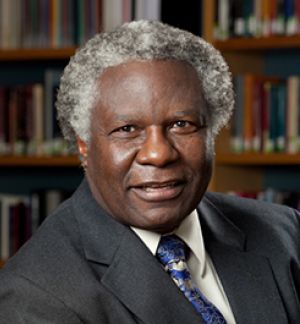"...the military could play a key role in building critical rural infrastructure such as roads and water supplies and helping to training local people to maintain it."
The United Nations Security Council has extended the peace-keeping mandate of the African Union in Somalia. This move has helped to refocus attention on the urgency to find lasting solutions to Africa’s internal conflicts.
The cost of armed conflict in a single developing country nearly equals the amount of development aid provided worldwide, according to a recent report by a UK Parliamentary committee on international development.
A civil war in a poor country could cost US$60 billion, compared to nearly US$84 billion provided in aid worldwide in 2004. These figures illustrate the importance of turning the war machine to development purposes.
War is a poor substitute for engaging the population in productive activities. It is the ultimate employment for those captured by warlords, failing states and insecure leaders unable to address the needs of their people. Africa’s rural poverty is due in part to poor infrastructure, especially the lack of roads, power and clean water.
Investing in rural infrastructure is often considered risky and is the subject of protracted arguments among economists. But evidence from China shows that in some cases low-quality roads have a more significant impact on rural economic development than high-quality roads.
Despite such evidence, most African countries will still need to deal with competing needs for limited finances.
This is where careful use of the facilities and skills in the military could play a key role in building critical rural infrastructure such as roads and water supplies and helping to training local people to maintain it.
Africa could learn from other countries. The US Army Corps of Engineers has been instrumental in the construction and maintenance of critical infrastructure since its creation in the 1930s. Similarly, the Corps of Royal Engineers has a long record spanning 900 years of contributing to civilian infrastructure .
Costa Rica abolished its army in 1948 and invested part of the saved financial resources in higher education and health.
One need not abolish the army to contribute to development. African countries are already finding new role for the military and its facilities.
The military has is participating in the design and implementation of infrastructure projects in countries such as Eritrea, Ghana, Kenya and Rwanda. The bulk of their civilian work in Africa, however, is through emergency operations.
This could be changed to give the military new roles and additional resources as a way to impart an ethos of national service and build new skills among the youth.
The reinvention of African armies as instruments of national reconstruction would also help to reshape relations between the continent and its international partners.
Maybe the time has come to start engaging African warring groups with a new message of hope that offers their fighters new opportunities for being part of reconstruction armies. Regional bodies such as the Economic Commission for West African States (ECOWAS) and the East African Community (EAC) could play a key role in setting training facilities as part of their peace-keeping operations.
Similarly, donor agencies could also contribute to such efforts by focusing their support in Africa on creating the basic infrastructure needed for economic development.
International military cooperation, however, cannot be a substitute for national and regional leadership to put the military to the most urgent task facing Africa: building new foundations for economic security and prosperity.
Prof Juma teaches at Harvard University’s Kennedy School of Government where he directs the Science, Technology, and Globalisation Project.
Juma, Calestous. “Africa Needs Development Armies.” Business Daily, September 13, 2007



